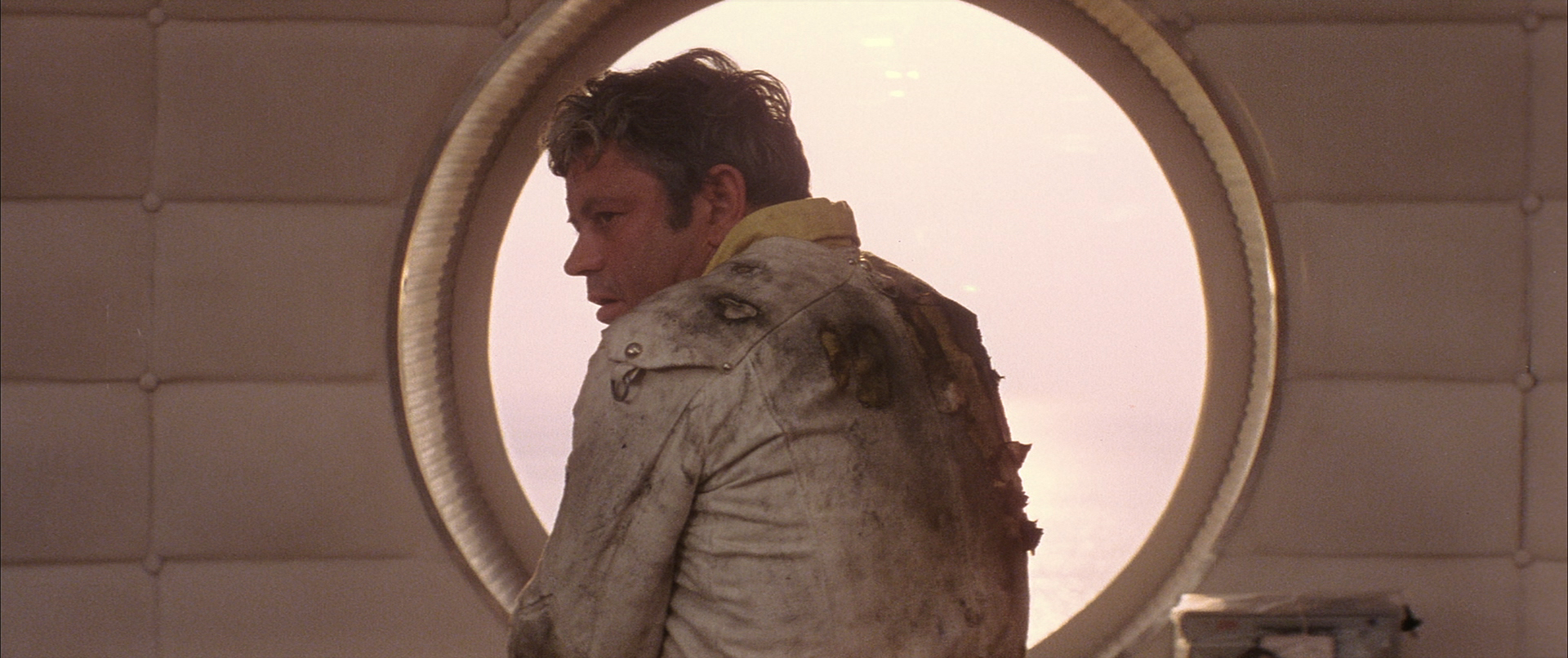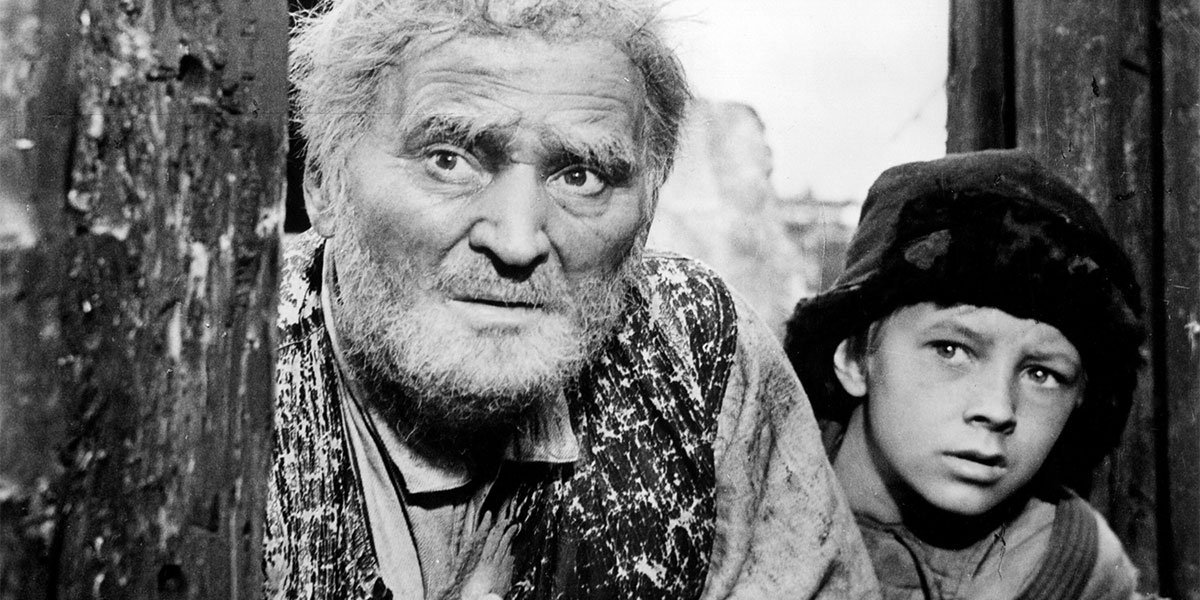Tarkovsky Retrospective: 'Art as preparation for death' inspired today's hipster directors
BY LIAM LACEY
The Toronto International Film Festival retrospective, The Poetry of Apocalypse: The Films of Andrei Tarkovsky (Nov. 9-30) is both a chance to catch up Russia's major filmmaker of the last sixty years and track his considerable influence.
As I watched his seven feature films - Ivan’s Childhood (1962), Andrei Rublev (1966), Solaris (1972), Mirror (1974), Stalker (1979), Nostalghia (1983) and The Sacrifice (1986) - it struck me that Tarkovsky, who died almost 31 years ago, is a more popular than I thought.
A religious director of almost medieval severity ("The aim of art is to prepare a person for death ..."), Tarkovsky's ideas and techniques have become the go-to place for filmmakers who want to create an exalted, enigmatic experience.
There are echoes in his work in hipster cinephile directors from Gus Van Sant (Gerry) Lars von Trier (Melancholia, Antichrist) Terrence Malick (The Tree of Life, The New World), Jim Jarmusch (Dead Man) and Christopher Nolan (Inception and Interstellar).
Scene from Solaris
The brooding obsessiveness of Tarkovsky's style was sometimes derided in his lifetime (“The same, eventually boring images keep recurring in film after film — shots of damp landscapes, marshes, hills in fog and abandoned buildings with roofs that leak,” The New York Times' critic, Vincent Canby, grumbled in 1983).
In the years since, slowness has gained a more positive connotation in cinema and other cultural areas, and yesterday's "boring" may be today's hypnotic. All Tarkovsky's films have been digitalized in recent years and his fans have filled YouTube with clips from his work, compiled, ranked, and set to music.
These clips tend to emphasize Tarkovsky's trippiest interludes: Bodies levitate; birds explode from under a cloth in a church; a woman washes her hair and her house fills with water.
Out of context, these carefully crafted hallucinations are like a peacock feather glued to a hat, only a suggestion of the real thing. In the solemn Tarkovsky barnyard, you must humbly wait until the bird fans its magnificent tail and the miracle happens.
Scene from Ivan's Childhood
The Tartovsky Canon (with first screening dates):
Ivan's Childhood (1962) - Tarkovsky's gifts are apparent in the astonishing first five minutes of his debut film: A shirtless 12-year-old boy in an orchard, chasing butterflies, then suddenly ascending into the air before touching down, then, racing to his waiting mother to drink from a bucket of water. This is one of a series of dreams of an orphan child soldier, working with Russian partisans against the Nazis. Praised by Jean-Paul Sartre and Ingmar Bergman, Ivan's Story was a extraordinary career beginning. (Nov.9, 6:30 p.m.)
Andrei Rublev (1966) - This monumental three-hour-plus, seven-part technical tour-de-force about the life of a 15th-century icon painter, is challenging, weird and euphoric, like finding yourself in the corner of Breughel painting. Filled with philosophical dialogue and brutal incidents (beatings, Tatar raids, eye-gouging attacks), the film balances episodes of creation and destruction, in making the case for a Christian artist as the defining Russian hero, an idea that got the film promptly banned by Soviet censors. (Nov. 10, 6:30 p.m.)
Solaris (1972) - In the cinema version of the space race, Tarkovsky's best-known film (remade by Steven Soderbergh in 2002) drew immediate comparisons to Stanley Kubrick's 2001: A Space Odyssey (which had come out four years earlier). Russian cosmonauts begin experiencing strange behaviour in proximity to an oceanic planet, Solaris, which can bring their memories to life. A psychologist who is sent to investigate is visited by his wife, who committed suicide a decade before. (Nov. 25, 7:30 p.m)
Mirror (1974) - Tarkovsky's most tender and personal film is a memoir that unfolds in a series of associated fragments of a boy's life. Dramatic scenes are mixed with montages accompanied by voice-over readings from the director's poet father, Arseny. The use of water, when the mother washes her hair, and when she levitates from a bed,- and fire, when a barn burns down, epitomize Tarkovsky's powerful use of elemental images. (Nov. 10, 6:45 p.m.)
Stalker (1979) - Tarkovsky returned to science fiction, but this time without the props in Stalker. In this eerie allegory, a Stalker (a guide) illicitly takes a writer and professor into a government-guarded forbidden area called The Zone, leading to a Room, where their secret wishes may come true. As the three men travel from their starting point, the screen turns from sepia brown to a lush green in an unpopulated post-industrial wasteland filled with invisible traps and visual enigmas. Tarkovsky's last film in the Soviet Union, it's at least partly about the struggles and duty of the artist. (Nov. 17, 9:05 p.m.
Nostalghia (1983) - Tarkovsky went to Italy to make this film about a writer researching the life of a fellow Russian composer. Accompanied by a beautiful translator, surrounded by Italy's powerful cultural history, the writer is drawn to a homeless religious zealot. Tarkovsky worked with Michelangelo Antonioni's screenwriter Tonino Guerra and the film, in Italian, has a flavour of Antonioni's alienated observational style, though the climactic scene -- a long allegorical walk through water with a fluttering candle -- is pure Tarkovsky. (Nov. 17, 6:15 p.m.)
The Sacrifice (1986) - Set in Sweden, in Swedish, The Sacrifice is an homage to one of Tarkovsky's idols, Ingmar Bergman. The drama follows a former actor and disillusioned intellectual (Ingmar Bergman regular Erland Josephson) who bargains with God to save the world from imminent nuclear destruction. While the interior scenes and theological bargaining evoke Bergman, The Sacrifice is very much a Tarkovsky fever dream, concluding in a famous scene of a raging house fire. Tartovsky was diagnosed with cancer at the end of the shoot and died a year later in December, 1986, at the age of 54. The film is dedicated to his son "with hope and confidence." (Nov. 19, 5:30 p.m.)
Included in the retrospective are the the student film, The Steamroller and the Violin, and Chris Marker's 1999 documentary on Tarkovsky, One Day in the Life of Andrei Arsenevich (Nov. 26). For complete details of the schedule, accompanying talks and ticket information, go to www.tiff.net.


